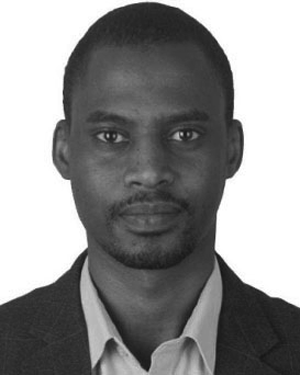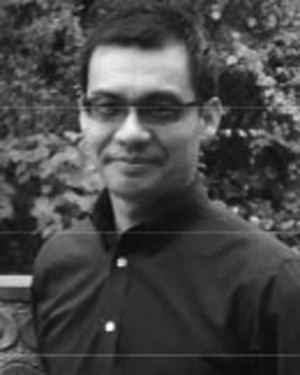Abstract:
Unmanned aerial vehicles (UAVs) can be deployed as wireless relays or aerial base stations to improve network connectivity and coverage in cellular networks. UAVs can als...Show MoreMetadata
Abstract:
Unmanned aerial vehicles (UAVs) can be deployed as wireless relays or aerial base stations to improve network connectivity and coverage in cellular networks. UAVs can also be used to significantly enhance the performance of mobile ad-hoc networks and wireless sensor networks. In the future, UAVs are expected to become an integral part of the fifth generation wireless networks as well as key enablers of the coming massive Internet of Things. However, there are still many challenging issues in designing architectures and deployment of UAV-based networks. To address the issues, game theory has recently been adopted as an effective tool for modeling and analyzing problems in UAV-aided networks. In this paper, we survey the applications of game theory in solving various UAV-assisted networks challenges. We first provide a brief introduction to wireless communications with UAVs and then introduce basic game theory concepts and their relation to wireless networks. We further present the classification and brief introduction to the games applied to solve problems in UAV-aided networks. We then provide a comprehensive literature review on game-theoretic techniques utilized in dealing with challenges in the UAV-based wireless networks. Finally, we introduce advanced distributed schemes for interference management in large UAV-assisted communication networks. This paper aims to provide readers with an understanding of UAV-aided networks in terms of their architecture, benefits, challenges, and various game theoretical solutions applied to these communications networks.
Published in: IEEE Communications Surveys & Tutorials ( Volume: 21, Issue: 4, Fourthquarter 2019)
Funding Agency:

State Key Laboratory of ISN, Xidian University, Xi’an, China
Mbazingwa Elirehema Mkiramweni received the bachelor’s degree in electronic information engineering and the master’s degree in information and telecommunication engineering from the University of Science and Technology Beijing, Beijing, China, in 2011 and 2014, respectively. He is currently pursuing the Doctoral degree with Xidian University, where he works on the Game, Utility, Artificial Intelligent Design for Emerging ...Show More
Mbazingwa Elirehema Mkiramweni received the bachelor’s degree in electronic information engineering and the master’s degree in information and telecommunication engineering from the University of Science and Technology Beijing, Beijing, China, in 2011 and 2014, respectively. He is currently pursuing the Doctoral degree with Xidian University, where he works on the Game, Utility, Artificial Intelligent Design for Emerging ...View more

State Key Laboratory of ISN, Xidian University, Xi’an, China
National Mobile Communications Research Laboratory, Southeast University, Nanjing, China
Chungang Yang (S’09–M’12–SM’19) received the bachelor’s and Doctoral degrees from Xidian University, Xi’an, China, in 2006 and 2011, respectively.
He is currently an Associate Professor with Xidian University, where he leads the research team of Game, Utility, Artificial Intelligent Design for Emerging Communications and Networks. He is also with the National Mobile Communications Research Laboratory, Southeast University....Show More
Chungang Yang (S’09–M’12–SM’19) received the bachelor’s and Doctoral degrees from Xidian University, Xi’an, China, in 2006 and 2011, respectively.
He is currently an Associate Professor with Xidian University, where he leads the research team of Game, Utility, Artificial Intelligent Design for Emerging Communications and Networks. He is also with the National Mobile Communications Research Laboratory, Southeast University....View more

State Key Laboratory of ISN, Xidian University, Xi’an, China
Jiandong Li (SM’05) received the B.S., M.S., and Ph.D. degrees in communications and electronic system from Xidian University in 1982, 1985, and 1991, respectively.
He has been with Xidian University since 1985, where he was an Associate Professor from 1990 to 1994, has been a Professor since 1994, has been the Ph.D. Student Supervisor since 1995, and has been the Dean of the School of Telecommunication Engineering since 1...Show More
Jiandong Li (SM’05) received the B.S., M.S., and Ph.D. degrees in communications and electronic system from Xidian University in 1982, 1985, and 1991, respectively.
He has been with Xidian University since 1985, where he was an Associate Professor from 1990 to 1994, has been a Professor since 1994, has been the Ph.D. Student Supervisor since 1995, and has been the Dean of the School of Telecommunication Engineering since 1...View more

School of Electrical Engineering and Telecommunications, University of New South Wales Sydney, Sydney, Australia
Wei Zhang (F’15) is a Professor with the University of New South Wales, Sydney, Australia. His current research interests include UAV communications, mmWave communications, space information networks, and massive MIMO. He is the Editor-in-Chief of IEEE Wireless Communications Letters and the Journal of Communications and Information Networks. He currently serves as the TPC Co-Chair of IEEE/CIC ICCC 2019, Changchun, China....Show More
Wei Zhang (F’15) is a Professor with the University of New South Wales, Sydney, Australia. His current research interests include UAV communications, mmWave communications, space information networks, and massive MIMO. He is the Editor-in-Chief of IEEE Wireless Communications Letters and the Journal of Communications and Information Networks. He currently serves as the TPC Co-Chair of IEEE/CIC ICCC 2019, Changchun, China....View more

State Key Laboratory of ISN, Xidian University, Xi’an, China
Mbazingwa Elirehema Mkiramweni received the bachelor’s degree in electronic information engineering and the master’s degree in information and telecommunication engineering from the University of Science and Technology Beijing, Beijing, China, in 2011 and 2014, respectively. He is currently pursuing the Doctoral degree with Xidian University, where he works on the Game, Utility, Artificial Intelligent Design for Emerging Communications and Networks Research Team, which is guided by Dr. C. Yang. He is also with the Dar es Salaam Institute of Technology, Tanzania. His research interests include resource and interference management and network optimization for 5G networks and UAV-assisted cellular networks and game theory for wireless communications.
Mbazingwa Elirehema Mkiramweni received the bachelor’s degree in electronic information engineering and the master’s degree in information and telecommunication engineering from the University of Science and Technology Beijing, Beijing, China, in 2011 and 2014, respectively. He is currently pursuing the Doctoral degree with Xidian University, where he works on the Game, Utility, Artificial Intelligent Design for Emerging Communications and Networks Research Team, which is guided by Dr. C. Yang. He is also with the Dar es Salaam Institute of Technology, Tanzania. His research interests include resource and interference management and network optimization for 5G networks and UAV-assisted cellular networks and game theory for wireless communications.View more

State Key Laboratory of ISN, Xidian University, Xi’an, China
National Mobile Communications Research Laboratory, Southeast University, Nanjing, China
Chungang Yang (S’09–M’12–SM’19) received the bachelor’s and Doctoral degrees from Xidian University, Xi’an, China, in 2006 and 2011, respectively.
He is currently an Associate Professor with Xidian University, where he leads the research team of Game, Utility, Artificial Intelligent Design for Emerging Communications and Networks. He is also with the National Mobile Communications Research Laboratory, Southeast University. From 2010 to 2011, he was a Visiting Scholar with the Department of Electrical and Computer Engineering, Michigan Technological University, and the Department of Electrical and Computer Engineering, University of Houston from 2015 to 2016. He has edited two books entitled Game Theory Framework Applied to Wireless Communication Networks (IGI Global, 2016) and Interference Mitigation and Energy Management in 5G Heterogeneous Cellular Networks (IGI Global, 2017). His research interests include resource and interference management, network optimization, and mechanism design for cognitive radio networks, heterogeneous cellular networks, and game theory for wireless communication and computing networks. He serves as an Editor for the KSII Transactions on Internet and Information Systems, and an Editor of special issue of Green and Energy Harvesting Wireless Networks, Wireless Communications and Mobile Computing.
Chungang Yang (S’09–M’12–SM’19) received the bachelor’s and Doctoral degrees from Xidian University, Xi’an, China, in 2006 and 2011, respectively.
He is currently an Associate Professor with Xidian University, where he leads the research team of Game, Utility, Artificial Intelligent Design for Emerging Communications and Networks. He is also with the National Mobile Communications Research Laboratory, Southeast University. From 2010 to 2011, he was a Visiting Scholar with the Department of Electrical and Computer Engineering, Michigan Technological University, and the Department of Electrical and Computer Engineering, University of Houston from 2015 to 2016. He has edited two books entitled Game Theory Framework Applied to Wireless Communication Networks (IGI Global, 2016) and Interference Mitigation and Energy Management in 5G Heterogeneous Cellular Networks (IGI Global, 2017). His research interests include resource and interference management, network optimization, and mechanism design for cognitive radio networks, heterogeneous cellular networks, and game theory for wireless communication and computing networks. He serves as an Editor for the KSII Transactions on Internet and Information Systems, and an Editor of special issue of Green and Energy Harvesting Wireless Networks, Wireless Communications and Mobile Computing.View more

State Key Laboratory of ISN, Xidian University, Xi’an, China
Jiandong Li (SM’05) received the B.S., M.S., and Ph.D. degrees in communications and electronic system from Xidian University in 1982, 1985, and 1991, respectively.
He has been with Xidian University since 1985, where he was an Associate Professor from 1990 to 1994, has been a Professor since 1994, has been the Ph.D. Student Supervisor since 1995, and has been the Dean of the School of Telecommunication Engineering since 1997. He is currently the Executive Vice Dean of the Graduate School, Xidian University. His current research interest and projects are funded by the 863 High Tech Project, NSFC, National Science Fund for Distinguished Young Scholars, TRAPOYT, MOE, and MOI. He is a Senior Member of the China Institute of Electronics and a fellow of the China Institute of Communication. He was a member of the PCN Specialist Group for China 863 Communication High Technology Program from 1993 to 1994 and from 1999 to 2000. He is also a member of the Communication Specialist Group, Ministry of Information Industry.
Jiandong Li (SM’05) received the B.S., M.S., and Ph.D. degrees in communications and electronic system from Xidian University in 1982, 1985, and 1991, respectively.
He has been with Xidian University since 1985, where he was an Associate Professor from 1990 to 1994, has been a Professor since 1994, has been the Ph.D. Student Supervisor since 1995, and has been the Dean of the School of Telecommunication Engineering since 1997. He is currently the Executive Vice Dean of the Graduate School, Xidian University. His current research interest and projects are funded by the 863 High Tech Project, NSFC, National Science Fund for Distinguished Young Scholars, TRAPOYT, MOE, and MOI. He is a Senior Member of the China Institute of Electronics and a fellow of the China Institute of Communication. He was a member of the PCN Specialist Group for China 863 Communication High Technology Program from 1993 to 1994 and from 1999 to 2000. He is also a member of the Communication Specialist Group, Ministry of Information Industry.View more

School of Electrical Engineering and Telecommunications, University of New South Wales Sydney, Sydney, Australia
Wei Zhang (F’15) is a Professor with the University of New South Wales, Sydney, Australia. His current research interests include UAV communications, mmWave communications, space information networks, and massive MIMO. He is the Editor-in-Chief of IEEE Wireless Communications Letters and the Journal of Communications and Information Networks. He currently serves as the TPC Co-Chair of IEEE/CIC ICCC 2019, Changchun, China. He also serves as the Chair for the IEEE Wireless Communications Technical Committee and the Vice Director of the IEEE Communications Society Asia–Pacific Board. He is a member of Fellow Evaluation Committee of the IEEE Vehicular Technology Society and a member of the Board of Governors of the IEEE Communications Society.
Wei Zhang (F’15) is a Professor with the University of New South Wales, Sydney, Australia. His current research interests include UAV communications, mmWave communications, space information networks, and massive MIMO. He is the Editor-in-Chief of IEEE Wireless Communications Letters and the Journal of Communications and Information Networks. He currently serves as the TPC Co-Chair of IEEE/CIC ICCC 2019, Changchun, China. He also serves as the Chair for the IEEE Wireless Communications Technical Committee and the Vice Director of the IEEE Communications Society Asia–Pacific Board. He is a member of Fellow Evaluation Committee of the IEEE Vehicular Technology Society and a member of the Board of Governors of the IEEE Communications Society.View more


